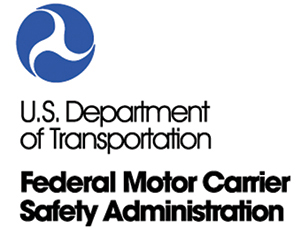Senior Reporter
Transportation Agencies Face Challenges Spending More for Safety

[Stay on top of transportation news: Get TTNews in your inbox.]
With billions of dollars in new congressional funding available for transportation regulatory agencies to spend on safety initiatives, several high-level federal officials said leaders must take a hard look at how that money is being spent, and whether there are opportunities to take new approaches to improve highway safety.
“Can you ever remember such an opportunity for growth?” asked Darrell Ruban, associate administrator of Federal Motor Carrier Safety Administration’s Office of Safety, during a June 1 session at the Midwest Commercial Vehicle Safety Summit in Kansas City, Mo., stressing that the Infrastructure Investment and Jobs Act signed by President Joe Biden in November provides FMCSA with $3.3 billion in resources over the next five years to spend on safety programs.
“My message here is we have an opportunity to save more lives and have greater impact overall,” Ruban said. “We certainly need to step up and do more. Now, the conversation turns to what’s working? What can we build upon? What are some new strategies, some new talking points? How do we move forward in a little bit different way?”

Ruban noted that the three most common factors related to fatal crashes in 2020 were speeding, driver impairment and distraction. “I bring that up to you because these are issues we have to deal with everywhere in the country every day,” he said.
Ruban also credited regulatory workers in attendance for their efforts in addressing highway safety — especially when considering how much truck traffic is on the roads. He said in the U.S. last year there were 13.5 million registered large trucks and 760,000 regulated carriers operating. In 2020, 11.7 billion tons of freight was shipped by trucks, he said.
“I tell you this just to put in perspective what all of you in the room are looking at from a safety perspective,” Ruban said. “That’s the daunting task. But I also congratulate all of you at the same time for a job well done over the years, knowing that data crash stats are going in the wrong direction. Without you all, I can only imagine what these numbers would be.”
Tom Keane, FMCSA associate administrator for registration and research, stressed that the new funding must be allocated in ways that can offset worrisome trends in highway fatalities.
“The last 10 years is the specific challenge we have,” he said. “The trend is upward, and at a historic level right now.” While Keane described the infrastructure bill funding as “once in a generation-level resources,” he said it also presents a challenge.
“The key to improving safety is how we invest that money on our safety strategies,” he said. “It’s requiring at this point a re-evaluation of what we’re doing, and a really hard look at what’s working and what may not be working.”
Keane added, “42,915 highway fatalities in 2021, that should make us all uncomfortable, that we’re not succeeding relatively speaking at our objective — our safety mission.”
“This is a rare moment in history when the resources and the strategy are available at the time of crisis,” said Anne Collins, Associate Administrator for Enforcement at the National Highway Traffic Safety Administration. “For us to be able to be the actors in this moment and to motivate the change is going to take great resilience.” Especially, she noted, in making the right decisions for allocating funding.

Collins
“It’s hard for all of us to spend money,” Collins said. “It means all the things that have to go into hiring, all the things that have to go into contracting and the procurement effort.”
“Psychologically the challenge is not just trying to think about things the same way we’ve done,” Collins added. “Change management in general is very hard to re-imagine the way in which our programs interact with the public, and interact with each other.”
Caitlin Hughes, director of the Office of Freight Management and Operations for the Federal Highway Administration, said one of the challenges will be to hire and train people to write grants to dole out the new resources. “A lot of these grants will go to nontraditional entities who don’t have experience. That’s going to take some time to get it right,” she said.
“FMCSA is challenged right now in hiring, and getting good quality people. We have money. We have opportunity. But being able to utilize those is going to be challenging to say the least,” Ruban added.
Want more news? Listen to today's daily briefing below or go here for more info:




